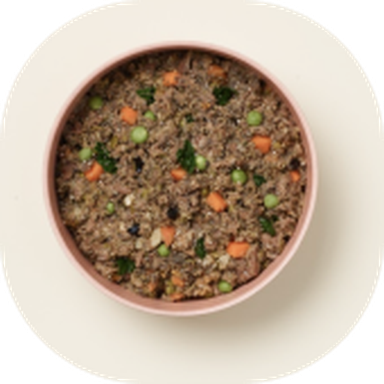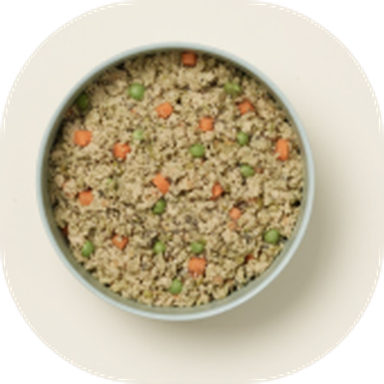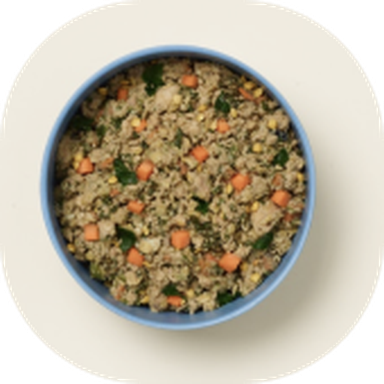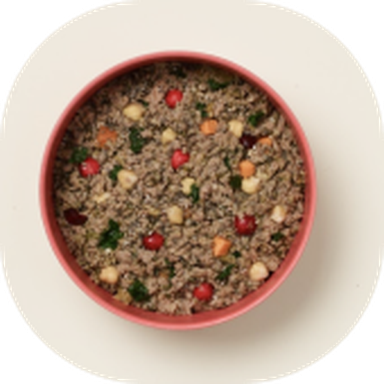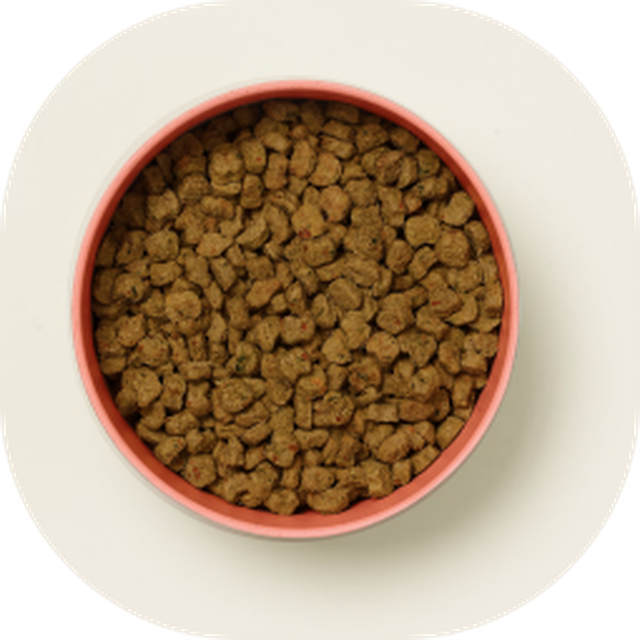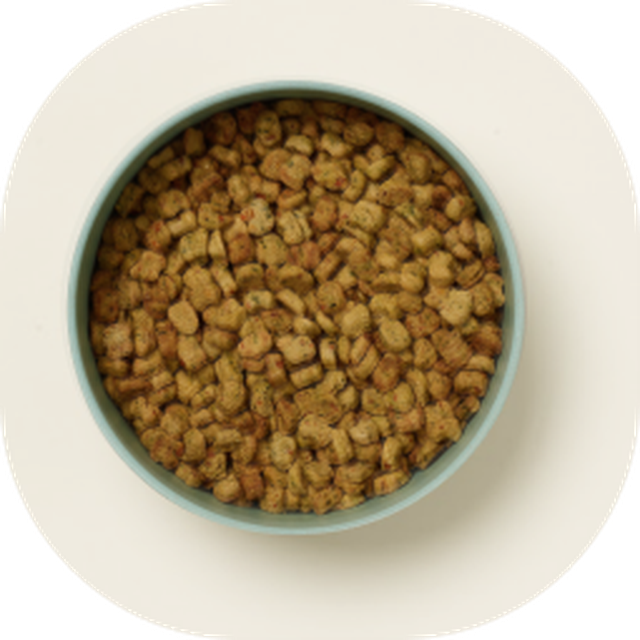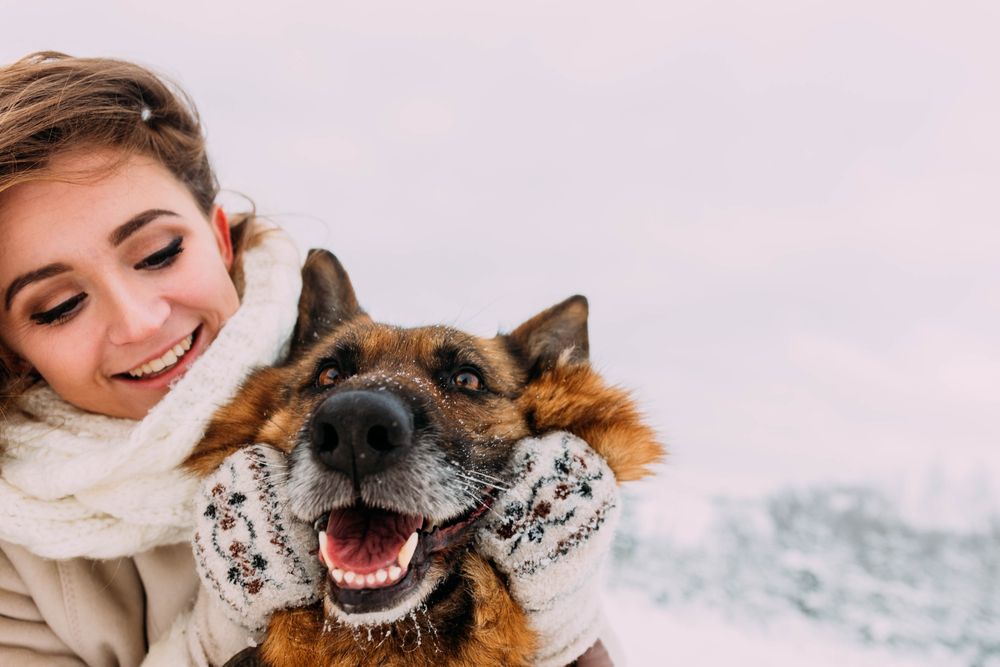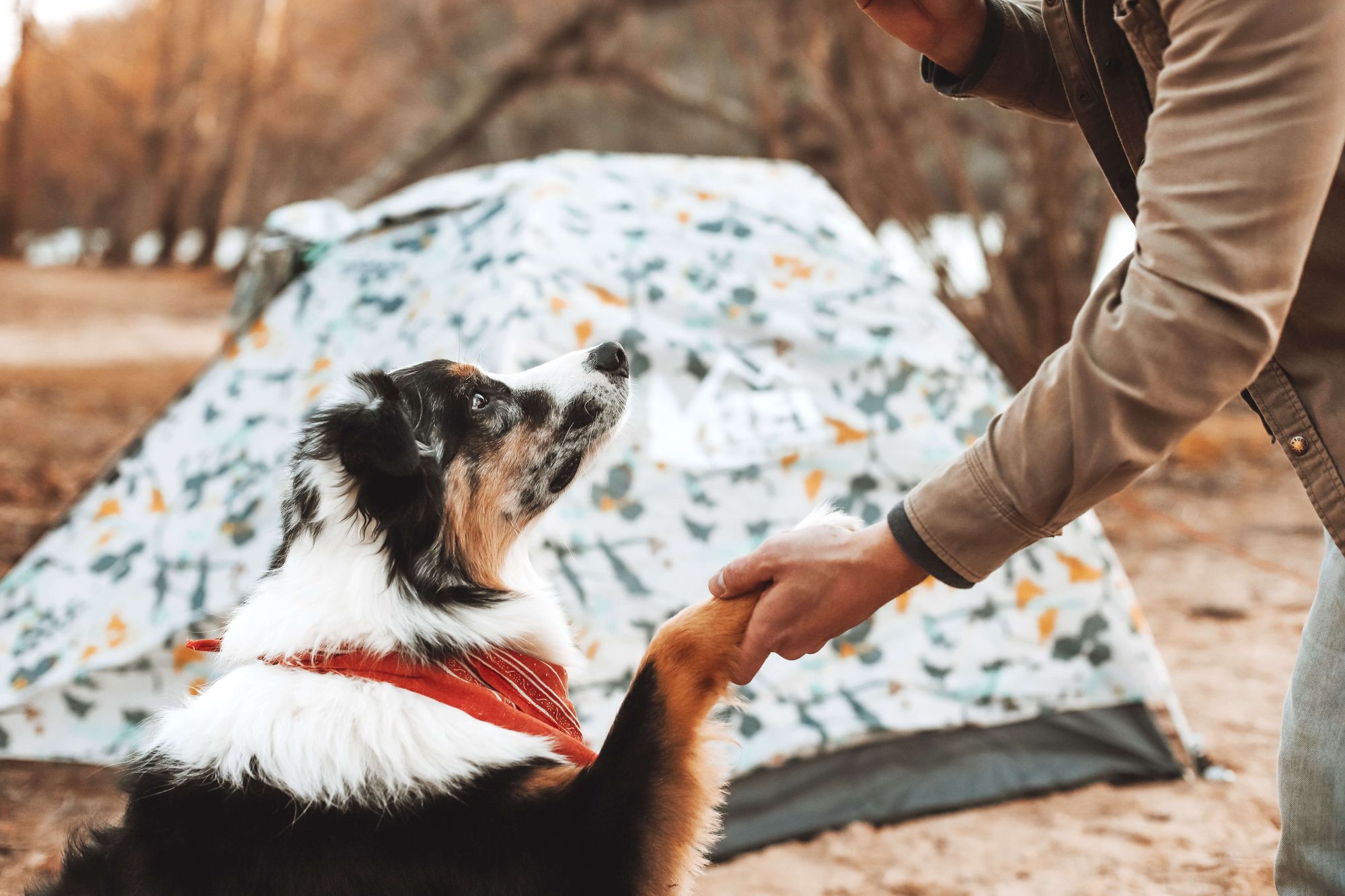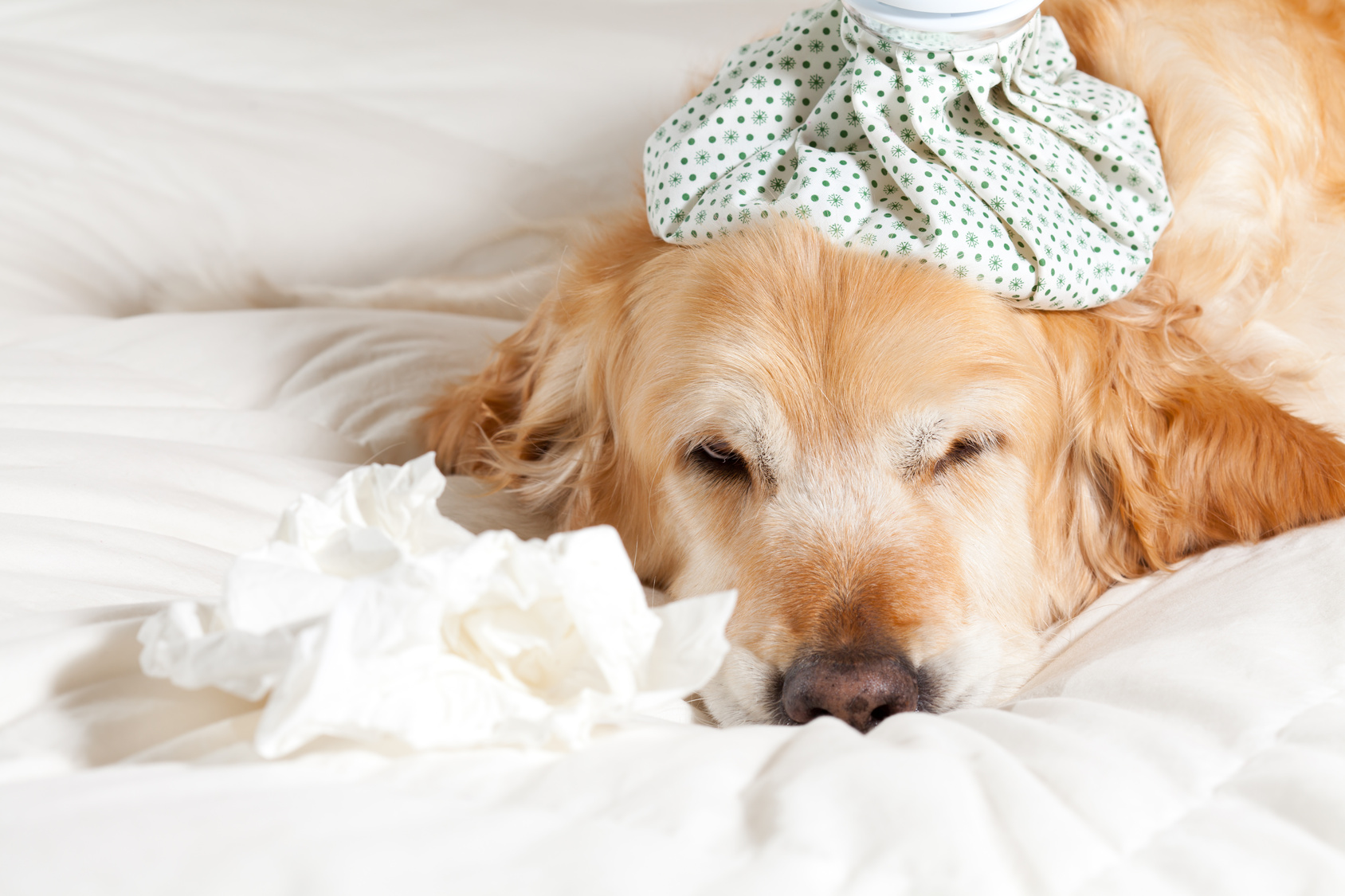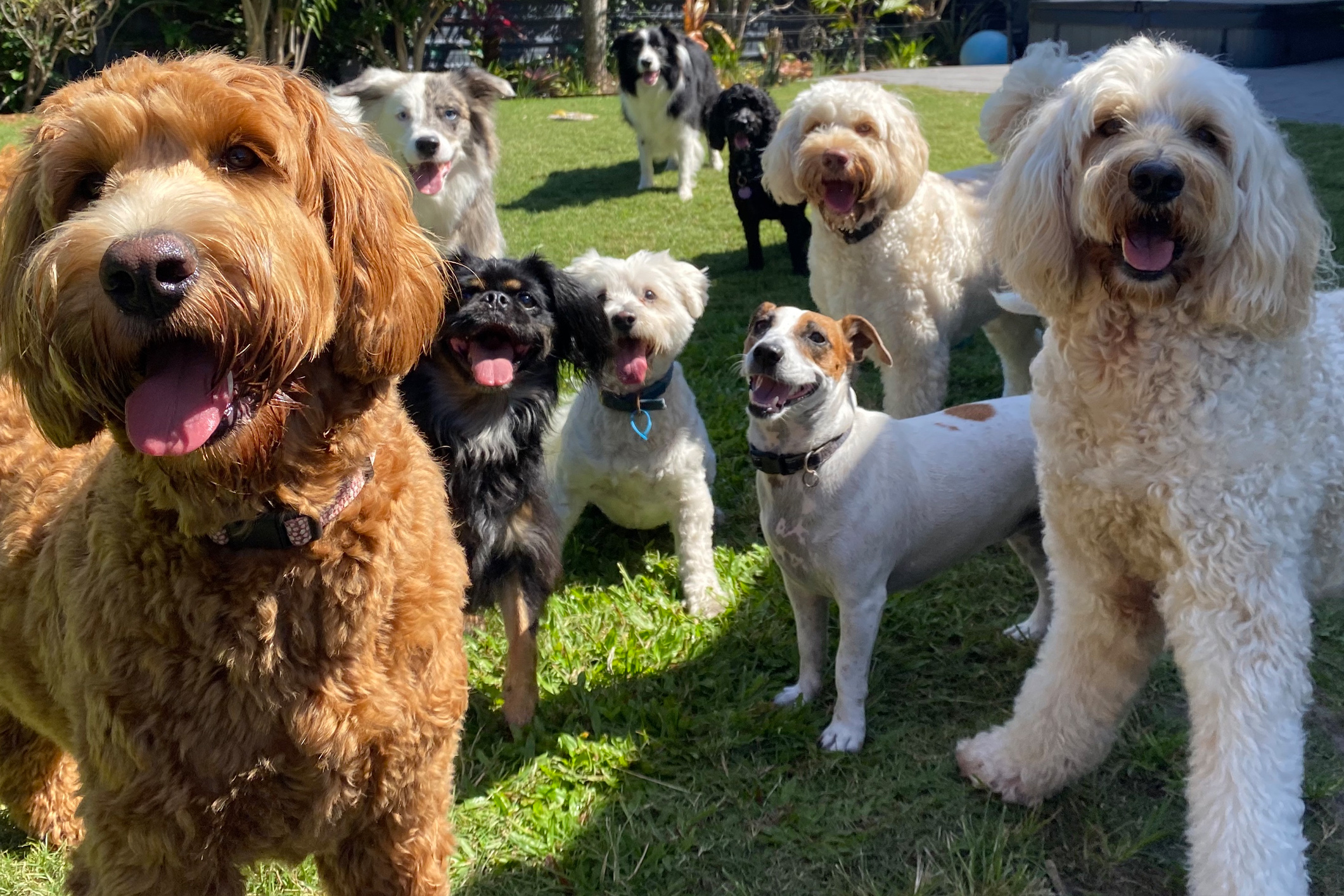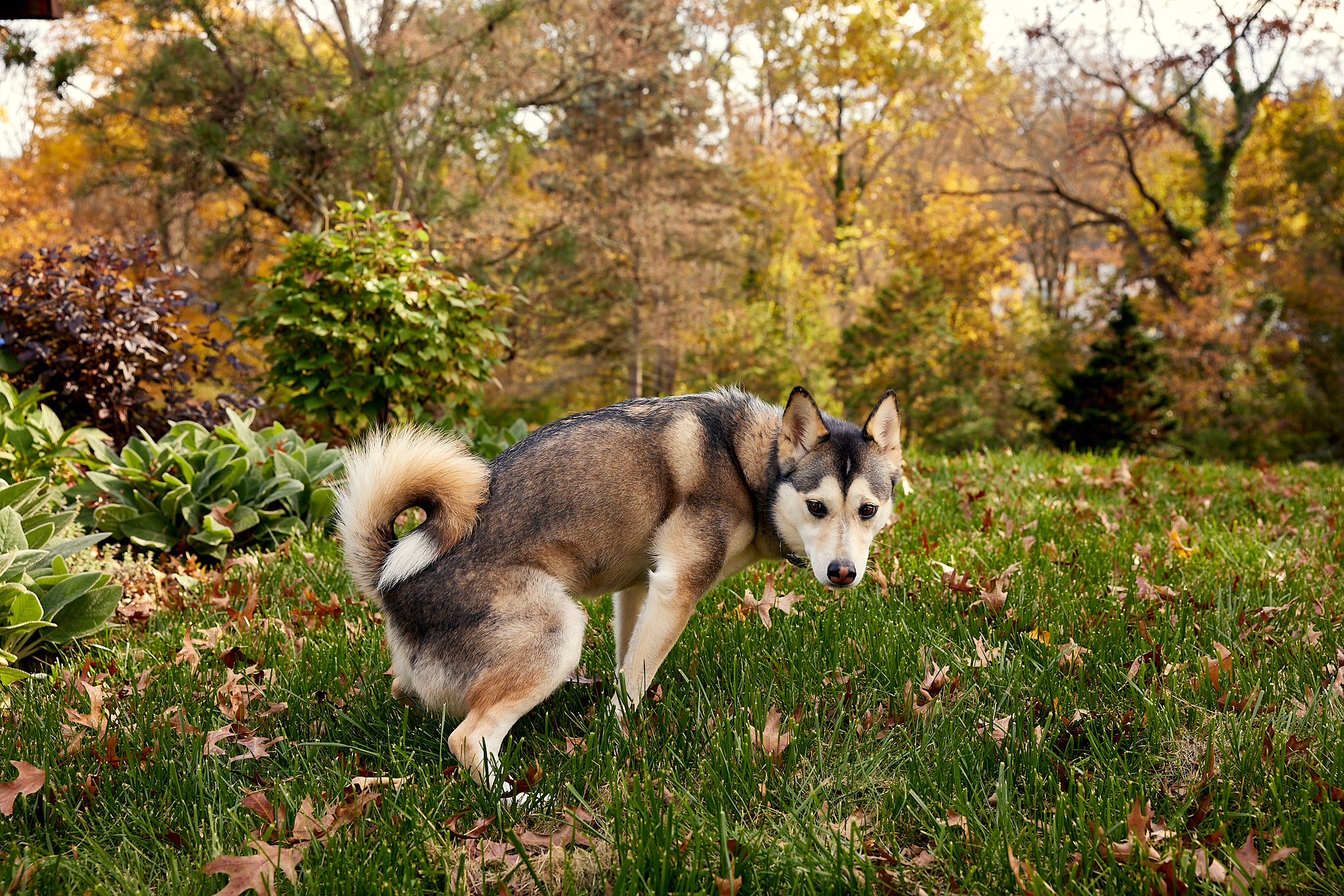Hey Ollie blog readers! We’re offering you an exclusive 60% OFF your starter box! Try now!
Winter weather brings a host of challenges to our own health and wellness routines. From dry skin and chapped lips to bloody noses and cold and flu spikes, there are many changes you might make to your own healthcare routine as temperatures drop. But do you know how to help your dog thrive in the cooler weather too? We’ve got you covered with our nose to tail guide.
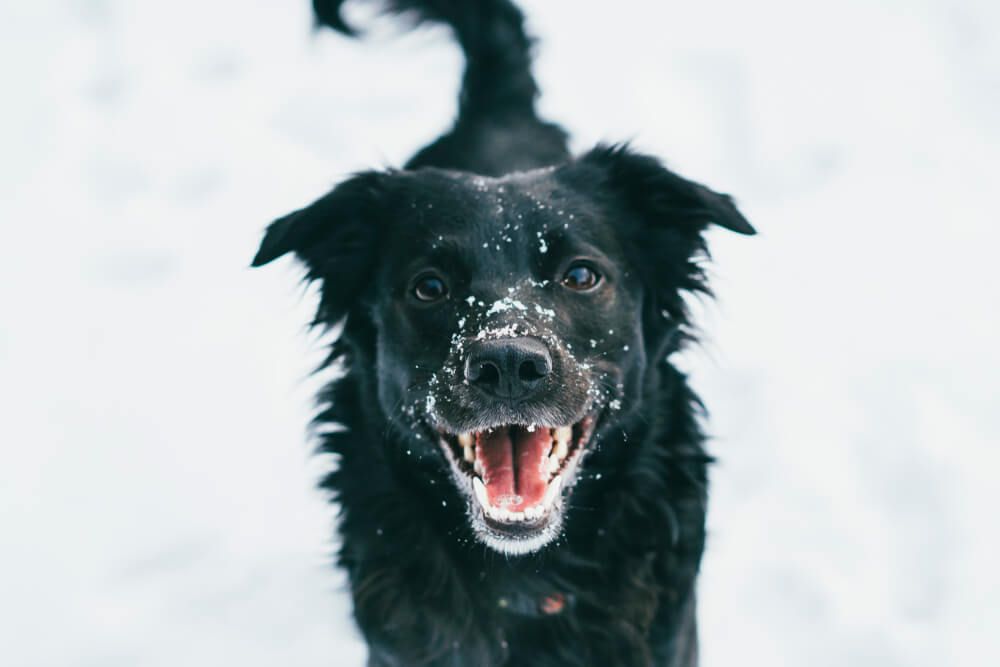
Nose care
Like your pup’s other extremities, their nose is susceptible to frostbite. Since you can’t cover your pup’s nose make sure to limit their exposure to extreme cold. Keep walks shorter and let your pup have ample time to warm up.
If you notice your pup’s nose changing color in the cooler weather, this condition, often called snow nose is not actually harmful to their health. While vets don’t know exactly why it happens, they do know that it is common in breeds like the Siberian Husky, Labrador Retriever, and Bernese Mountain Dogs.
If your dog has other symptoms along with the color change including crusting, bleeding, or an itchy nose, have the vet take a look. This could signal other issues ranging from seasonal allergies to lupus or cancer so you want to make sure you know what you’re dealing with.
One other watch out is specifically for flat faced dogs like pugs. These pups fall into a category of dogs known as brachycephalic. Because of the shape of their skull and flat faces they are especially sensitive to cooler weather.
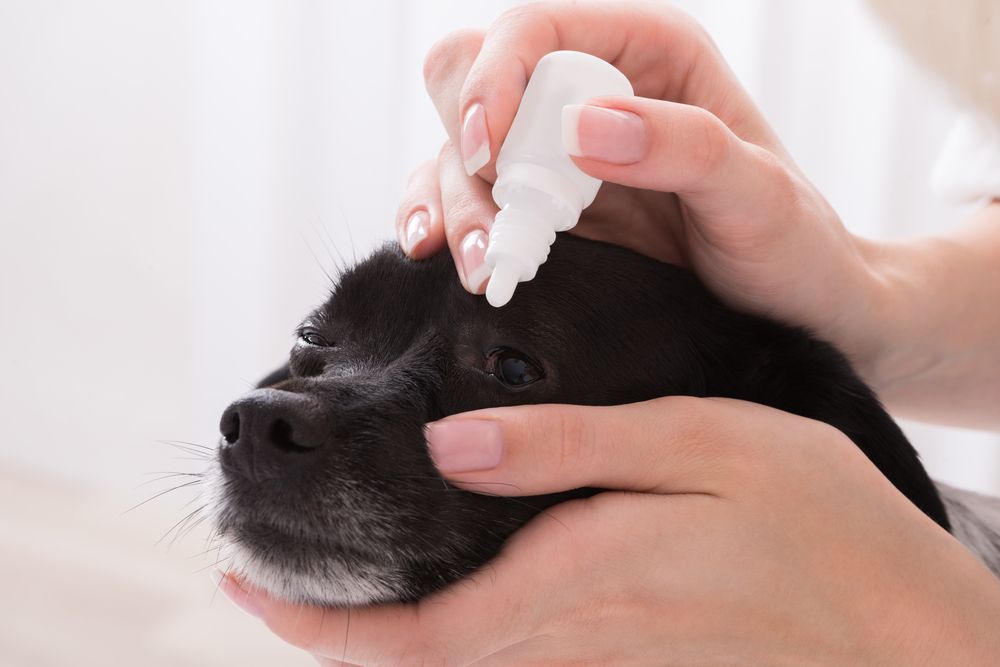
Eye care
Winter weather can bring with it some seasonal allergens. These allergens can impact your pup’s eyes. If you notice redness or your pup itching it could just be seasonal allergies. Like us, our dogs are also prone to dry eyes. The dry heat in our homes can dry our pup’s eyes out just like ours.
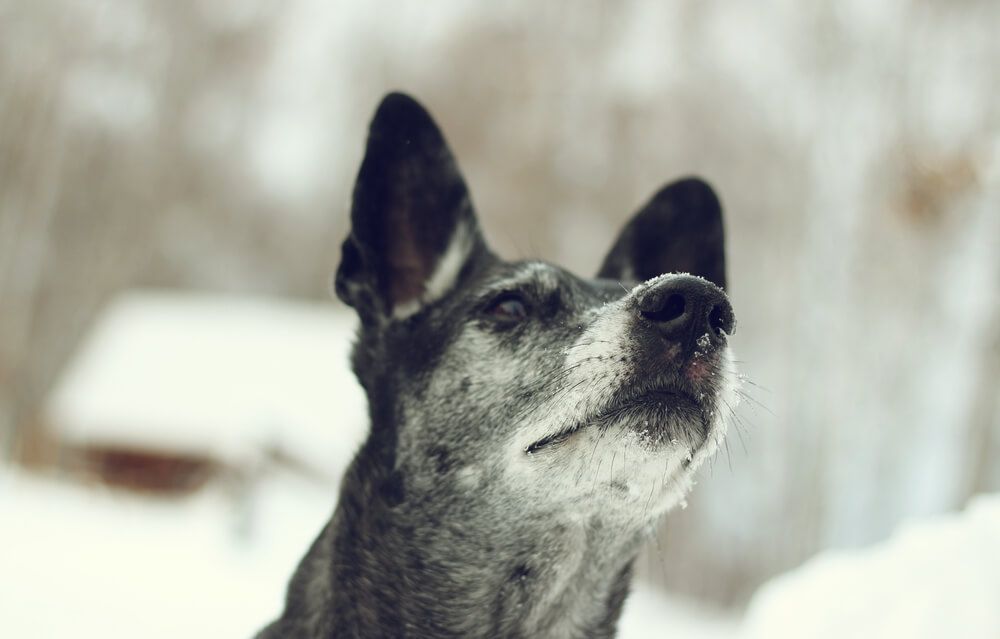
Ear care
In addition to watching for frostbite, you will want to monitor your pup’s ears for signs of infection. Even if they aren’t spending time in the water as they do in warmer weather ear infections can still happen in the winter.
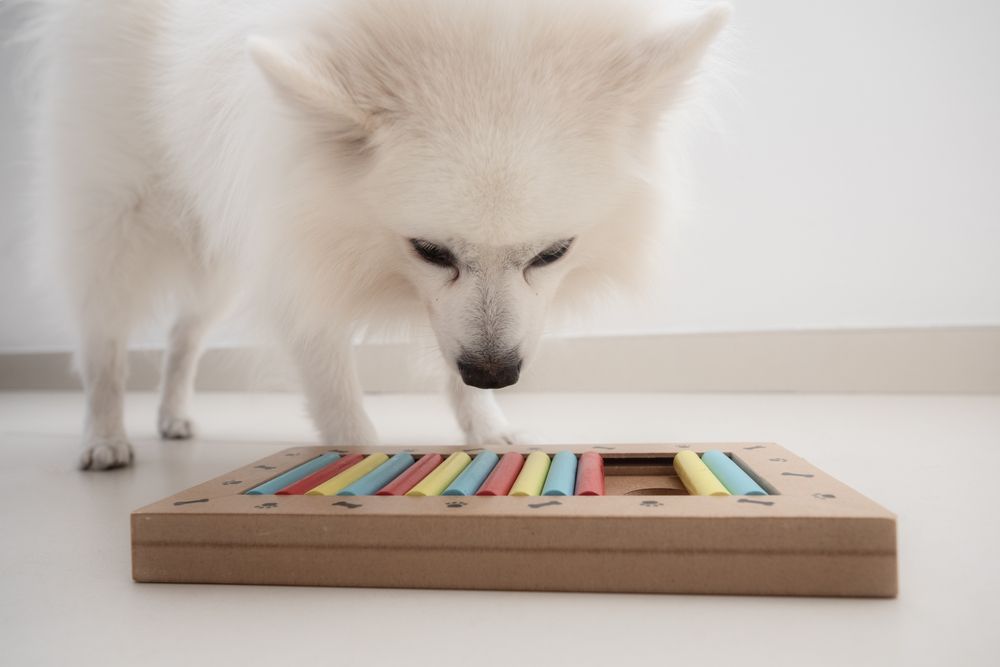
Brain health
Okay, your dog probably doesn’t suffer from seasonal depression but ensuring they get enough mental stimulation now that the weather is cooler and the days are shorter is very important. If it’s too cold, wet, or icy for long walks or running around the dog park, you will need to add some engaging indoor activities to your arsenal of tricks. Consider scent or nose work, puzzle toys, or even something fun (and safe) for your pup to chew. If you find that your dog is picking up bad habits or destructive behaviors during the winter weather, you might want to check in with a trainer for some additional ideas.
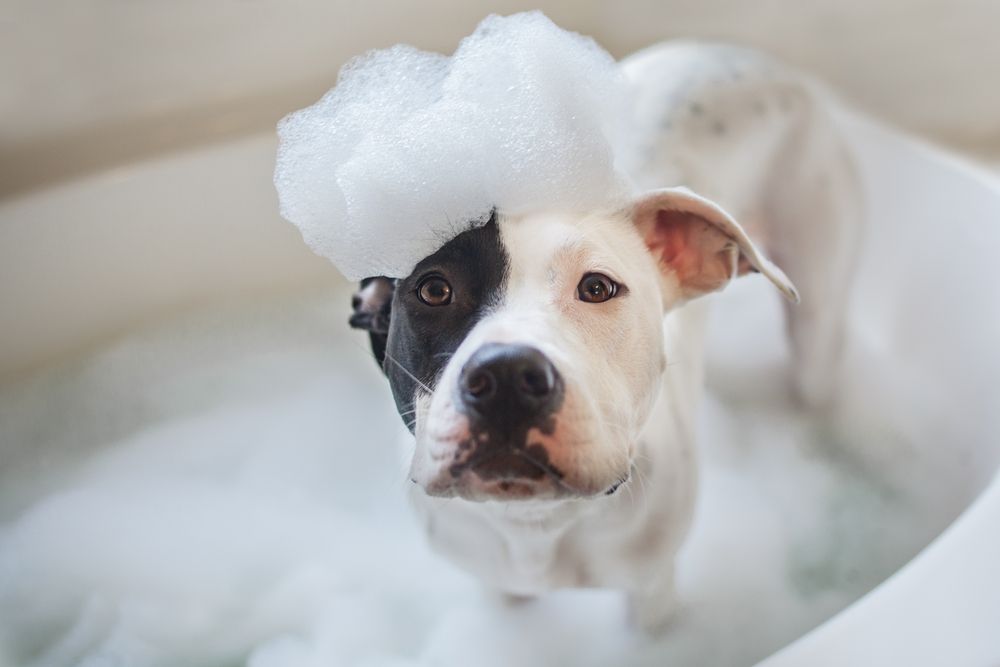
Skin care
Dry itchy skin is a concern for your pup in the winter. A few things you can do to help keep your pup from getting too dry:
- Keep baths to a minimum and dry your dog completely
- Use a mosturizing shampoo or treatment like Espree Dead Sea Mineral Mud Bath or DermAllay Oatmeal Spray Conditioner
- Do not allow your dog to scratch or lick excessively as it could lead to infection or hair loss
- Cover your dog with pajamas or use an Elizabethan Collar (cone of shame) to prevent scratching or licking
Although winter is not peak season for mosquitos, fleas or ticks, you should continue with your pup’s preventative regimen as it is not impossible to contract heartworm or see some fleas or ticks. If you have concerns, chat with your vet.
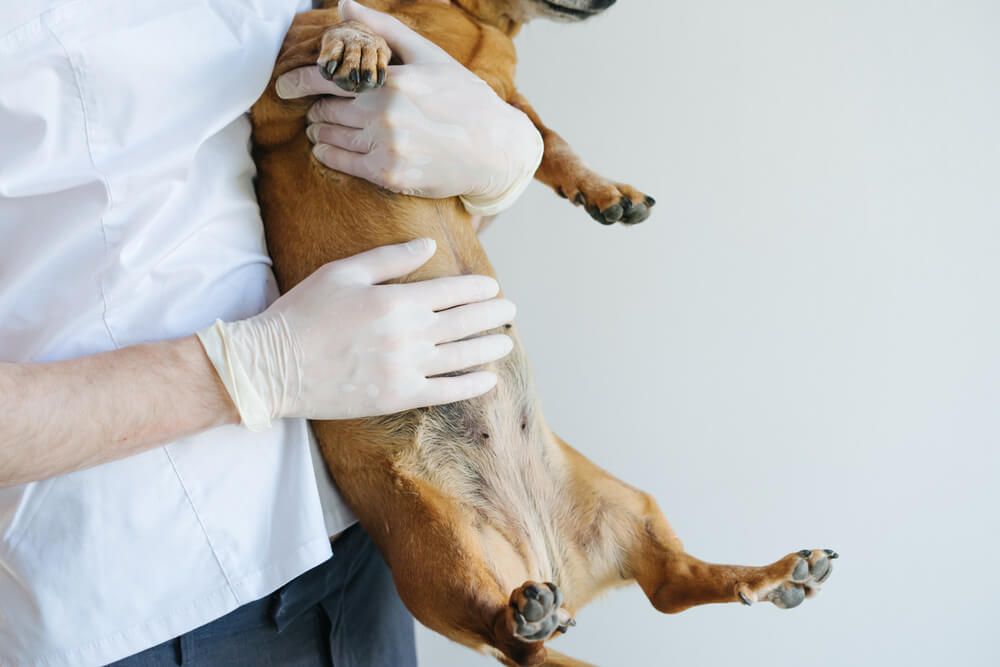
Digestive care
What your pup is eating and drinking may not change dramatically in the winter but it’s still important to pay attention to what goes into your pup’s belly!
Healthy hydration is just as important in the winter as in the summer. Your pet should always have access to cool fresh water! Dehydration in the winter is more common than you think.
If your dog isn’t into winter sports and becomes less active, it may also be a good idea to re-asses your pup’s caloric needs. If your dog’s activity level decreases dramatically, you also may need to reduce portion sizes at meals as well as treats.
Winter holidays also come with plenty of food traditions. Make sure you know what foods are safe to allow your pup to indulge in and which to avoid. Things like garlic, onions, chocolate and raisins should always be off limits.
You also want to avoid toxic substances like de-icers and antifreeze that your dog might be able to find this time of year. If you suspect your pet has ingested a toxic substance, call your vet ASAP!
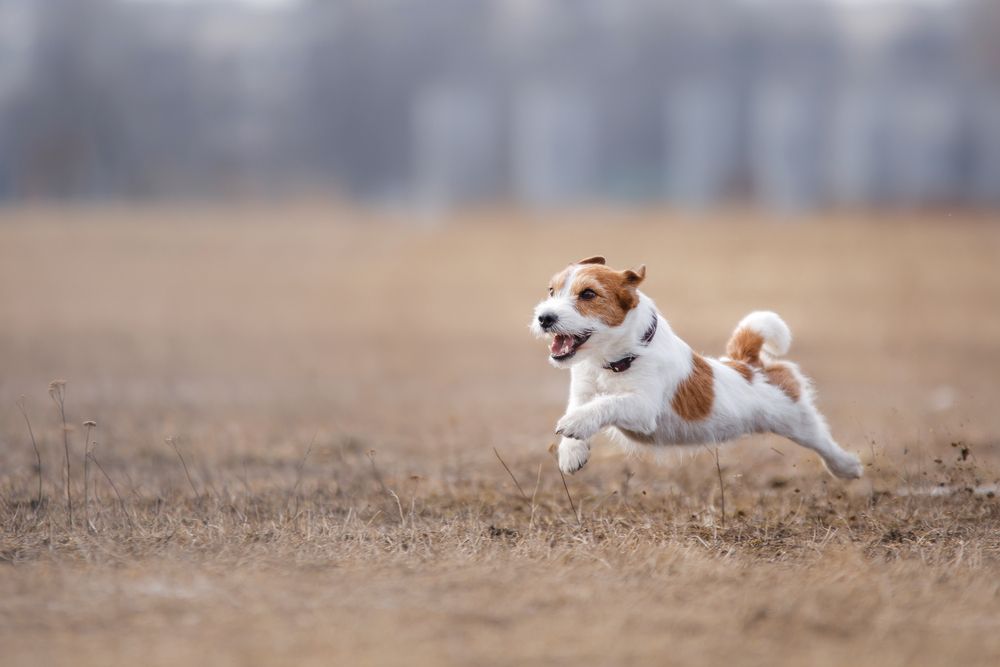
Muscle and bone health
If your pup slips on the ice badly enough they can pull or sprain a muscle or break a bone. While this might sound extreme, it is more common than you think, especially as our dogs age. Use extra caution when walking in the winter and consider protective booties if that’s appropriate for your dog.
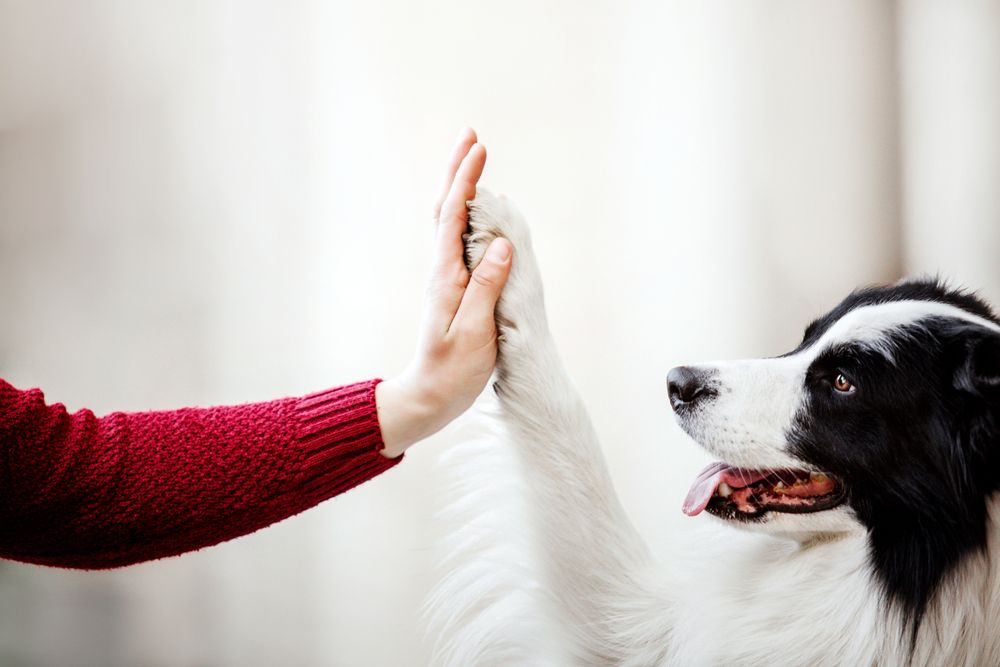
Paw care
Salt in the road or sidewalk can get into your pup’s paw pads. This can cause irritation or burns. You also want to be careful if your pup licks at their feet excessively. The salt used to keep ice away can make your pup sick. Whenever possible use a product that is designed to be pet safe! Paws are also another place your pup can suffer from frostbite. If you are headed out in the extreme cold, keep it short and/or bundle up!
If your pup is prone to dry cracked paws, you can use a barrier product like Musher’s Secret. This non-toxic food grade wax product was designed to protect the paws of sled dogs. It is permeable so your pup can still sweat if they are out walking, running or playing rough!
As a bonus, you can use musher’s secret on your pup’s nose, ears, elbows or anywhere they have a hot spot for extra protection.
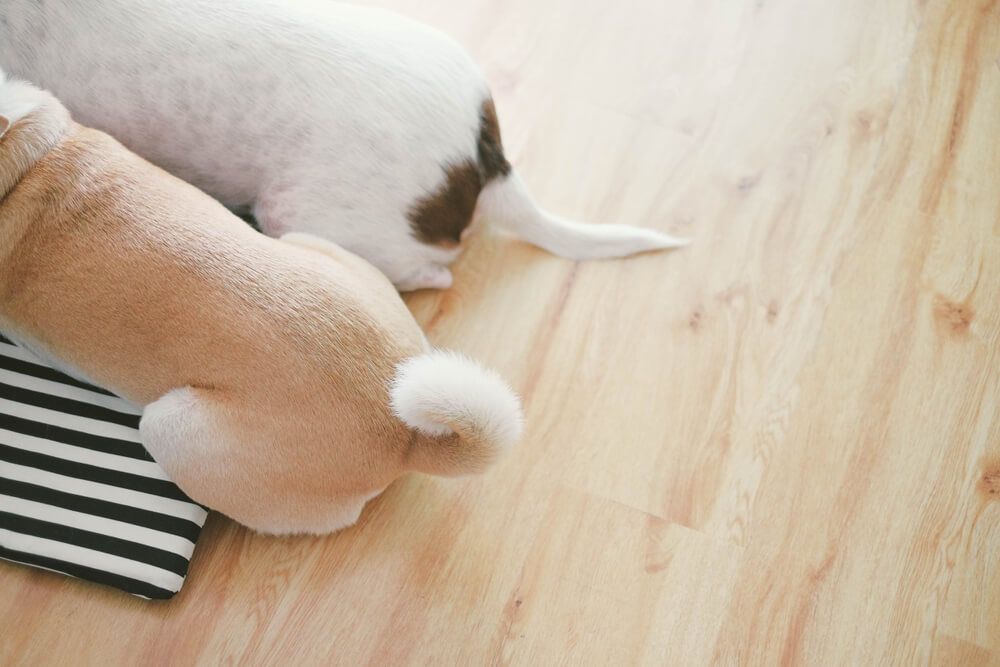
Tail care
The tip of the tail is another common place you might see frostbite. Make sure to check your pup’s tail (along with their ears and paws) after a long walk or play session in the snow. This time of year it is also important to watch tails around heaters, holiday decorations and candles. You don’t want an over excited dog burning their tail or getting caught on the holiday lights!
Whether you and your pup love winter weather or dread it, we hope you now feel more prepared to have a safe and fun winter with your very best friend!
The Ollie blog is devoted to helping pet parents lead healthier lives with their pups. If you want to learn more about our fresh, human-grade food, check out MyOllie.com.
Tagged As:

The nutrition your dog needs,
the food they want.

Enjoying our articles? Subscribe our Newsletters and get new articles directly to your inbox
You might also like
9 September 2024
3 MINS READ
How to Choose the Right Dog Daycare
When it comes to finding the best dog daycare, it can be hard to know where to start. Read on for tips on what to look for, ask about, and keep in mind during your search.
by Ollie Pets
26 April 2024
4 MINS READ
How Often Should I Take My Dog To The Vet?
Routine veterinary care is important for your dog’s overall health—but how often should your pup visit the vet? We answer this question and outline common health signs that warrant a veterinary…
by Ollie Pets
28 February 2024
6 MINS READ
Why Do Dogs Eat Poop & How to Stop It
Does your dog partake in poop? We get to the bottom of this unusual behavior, including its medical and behavioral causes, and how to address it.
by Ollie Pets
